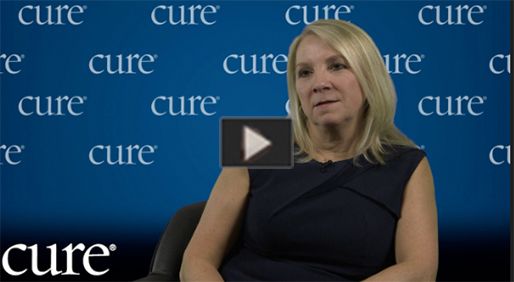
There’s no magic bullet according to this cancer survivor and magician, but plenty of misdirection.


There’s no magic bullet according to this cancer survivor and magician, but plenty of misdirection.

I realized that my concept of normal has changed, but it isn't all bad.

Cancer at any stage is hard for friends and family, but it requires special strength from those who know someone with metastatic disease.

Finding the right support group is great medicine.

After a mastectomy, a woman is faced with many choices. My advice is to do what is most comfortable and healthful for you. The prosthetic bra, the asymmetrical or flattened chest, reconstruction—any of these choices should feel right if a woman listens to her own heart.

Group acupuncture plays a beneficial role for the management of side effects for patients with breast cancer.

Weight-related breast cancer risk is not sufficiently discussed between health care providers and patients, according to a recent study.


It took time to learn that protecting my kids from what I am going through also takes away my ability to support them.

Bedtime worries are always tough, but when the fear of cancer recurrence is always lingering in the background, they seem so much worse.

Tips on learning to move from cancer survivor to thriver.

A phase 3 study showed that adding Ibrance to Femara reduces disease progression for patients with ER-positive, HER2-negative advanced or metastatic breast cancer.

A population-based study revealed that less black women are tested or treated for BRCA mutations when compared with white and Hispanic women.

Organizations across America are dedicated to making sure patients with cancer look and feel beautiful.

Women are reducing their risk of recurrence by extending their adjuvant therapy with an aromatase inhibitor (AI) to 10 years after treatment for their early-stage HR-positive breast cancer.

Breast cancer can bring the surprise of lymphedema to the unsuspecting, uniformed patient.

People across the nation are participating in the Metastatic Breast Cancer (MBC) Project to help researchers steer the approach in fighting the disease.

Recent findings may make way for a less expensive treatment option for patients with metastatic breast cancer.

Melanoma cancer survivor is grateful and feels like she discovered that she is allergic to air.

The role of radiation continues to change for patients with breast cancer, especially for those over the age of 70, for whom radiation might not be the best option.

Summer presents many challenges for breast cancer survivors, especially those who've experienced mastectomies.

Postmenopausal women with locally-advanced or metastatic HR-positive breast cancer benefited from the use of Faslodex (fulvestrant) as a frontline treatment.

A recent study showed that for young women who were treated for cancer, the issue of fertility is not adequately addressed.

According to a recent study, women with the BRCA1 mutation should not delay their pregnancies because their fertility may quickly decline once they enter their 30s.

A cancer survivor shares a surprisingly simple idea.